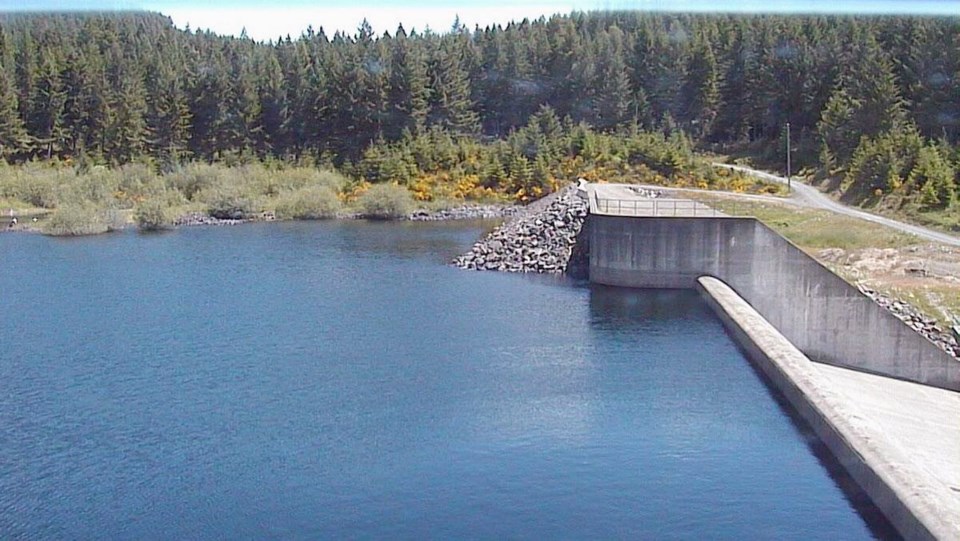The likelihood of a drought across sa���ʴ�ý is rising as warm weather melts away what’s left of a minuscule mountain snow pack and spring rains fail to appear, say provincial wildfire and forecast experts.
Drought level warnings for Vancouver Island, the Gulf Islands and sa���ʴ�ý’s northeast have already increased to the voluntary water-restrictions stage. Dave Campbell, head of the sa���ʴ�ý River Forecast Centre, said Tuesday the forecast points to provincewide drought in coming weeks.
“It’s hard to predict whether we’re going to get much rain or not and that’s going to be the wild card,” Campbell said. “But I think right now we’re at a stage of seeing there certainly is a lot of increased risk this year.”
Provincial officials have called for voluntary 20 to 30 per cent reductions in water use on Vancouver Island and the Gulf Islands. There is less concern for Greater Victoria, where Capital Regional District officials say water needs will likely be met through the summer because of the Sooke Lake Reservoir.
sa���ʴ�ý’s winter snow packs this spring are half of what they would typically be and between 55 per cent and 100 per cent of the snow that feeds many of the province’s waterways has already melted, Campbell said.
If spring rains don’t arrive soon, the drought conditions will increase, he said.
“To some extent, the way things are setting up, I don’t think it’s too early to raise some of those alarm bells,” said Campbell, suggesting more use of voluntary water restrictions and communities and farmers practising conservation measures.
The sa���ʴ�ý Wildfire Service has also been watching the weather, hoping rain will bring moisture to the forest floor.
“If the forecasts are correct, then we’re looking at a drier-than-normal June, and this could result in a greater total of area burned for the season due to an earlier availability of dry fuels,” said Erika Berg, a wildfire service officer in a telephone interview from Kamloops.
But she said the preliminary forecasts are not predicting the record fire seasons similar to the past two summers, where sa���ʴ�ý declared emergencies because of out-of-control wildfires. Last year, dry weather contributed to sa���ʴ�ý’s wildfire season, with more than 2,100 fires consuming about 13,000 square kilometres of forest, grassland and properties.
The latest wildfire service seasonal outlook for June forecasts busier than normal fire activity, Berg said.
Richard Kennett, a co-owner of Bucky’s Sports Shop in Duncan said the dry spring and the prospect of prolonged hot days has him worried that vital salmon spawning tributaries will dry up, causing a severe blow to the vulnerable fish stocks.
“The streams are like they were in August of last year,” Kennett said.
“It’s already low. The water is at summer levels.”
Federal Fisheries Minister Jonathan Wilkinson introduced strict chinook salmon fishing closures this year in an effort to ensure more fish are able to get to their spawning grounds. The restrictions include a catch-and-release only fishery until at least mid-July on many parts of Vancouver Island.
Kennett said chinook salmon returns to Duncan-area streams and rivers have been strong for the past five years, but a drought poses a major threat. Chinook salmon are the primary food source of the threatened southern resident killer whales.
Campbell said low water levels and rising river and stream temperatures will pose significant threats to fish stocks. “Certainly, we do see in years where we have low flow that there can be quite a lot of fish mortality.”
Despite a good supply of reservoir water, the Capital Regional Disrict is asking residents in the Victoria area to restrict water use, including watering lawns only twice a week. Even-numbered houses can water lawns Wednesdays and Saturdays between 4 a.m. and 10 a.m., and 7 p.m. and 10 p.m. Odd-numbered houses can water lawns Thursdays and Sundays during the same hours.
Nanaimo Regional District has asked for voluntary restrictions, such as watering lawns every other day.
— with files from the sa���ʴ�ý



